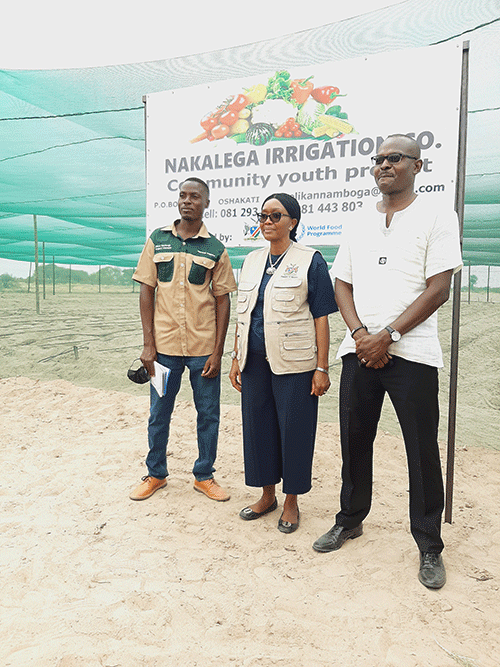Too much reliance on imports for basic foods is a security risk as possible lockdowns can lead to supply chain disruptions, Prime Minister Saara Kuugongelwa-Amadhila said last week.
She sounded the warning before launching the revised National Food and Nutrition Security Policy at the Nakalega irrigation project at Uukwangula in the Okatana constituency of the Oshana region.
Recent statistics indicate that Namibia imports up to 12.6% of its local food requirements, with South Africa being the largest source of food import into Namibia, followed by Zambia.
“This is a business opportunity for us, Namibians, to engage in food production, as it confirms a local market for the products that are currently imported, thereby supporting local economic growth and dealing with joblessness which is pervasive, especially amongst women and the youth,” said Kuugongelwa-Amadhila.
However, the arid nature of the country requires optimal ways of utilising water to increase local production of food in order to lessen reliance on the importation of foods.
The PM was pleased to note that Namibia has producers of food, processing entities that add value to such, as well as distributors who are crucial in the movement of food from supply to demand, and retailers and wholesalers and the ultimate consumers.
However, Namibia’s good food functioning markets create dependence of households on markets and less growing of food at household level, she said.
Kuugongelwa-Amadhila then cited a study that revealed that some households’ food purchases are up to 95%, meaning virtually all that is consumed is bought from the market, and little or nothing is grown at home.
She then called on all citizens to develop smallholder home gardens, where they can get food and fruits to supplement their daily diets.
“I wish to emphasise that this journey requires us to hold hands. Together, we should press the reset button. This transformation needs to be sparked and driven at community level, and culminate into national dialogue to strengthen our transformation efforts.”
The National Food and Nutrition Security Policy was adopted by Cabinet in September this year and aims to increase investment in food and nutrition security.
It further intends to increase domestic food production and enhance processing, marketing and consumption of food; reduce the prevalence of undernourishment and stunting through nutrition sensitive interventions; and transform the agriculture sector.
Also speaking at the event, Oshana governor Elia Irimari said food and nutrition security is central to achieving sustainable economic growth as well as building inclusive and dignified livelihoods for the people.
“For the country to attain food self-sufficiency will require the participation of all stakeholders at household and grassroots levels.”
The Nakalega irrigation project currently employs 19 youth, up from three people when it started, and supplies fresh produce to formal traders such as Spar and Rani, Okay stores.
Owner Elikan Namboga urged traditional leaders to provide land to the youth to start with their gardens in the villages.
- fhamalwa@nepc.com.na


